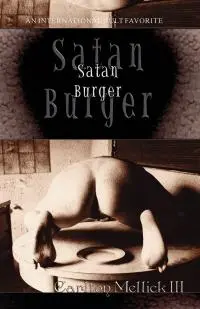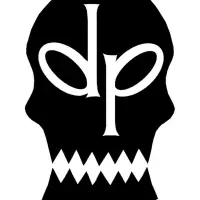Original image via Valeria Boltneva
Young Rose O’Keefe remembers riding in a carpool with five of her kindergarten friends. The other children had already learned how to read, and their power to decipher signs and billboards amazed her. She became jealous of their ability, and memorized the signs so she could play along, but this wasn’t reading. She would look at the pictures in the Dick and Jane books during recess, still unable to understand the words. Then one day, all in a flash, the words made sense. Not only that, she was able to read the words in other books, too. She was elated. But despite her newly acquired skill, her hunger for stories remained insatiable.
Bloom in Your World
Rose’s parents were both teachers, entrepreneurs, and idealistic hippies. When Rose was born, she sort of became their "big project." They endeavored to feed her mind and body with only the best. They taught her transcendental meditation at a young age, limited her screen time, and kept her away from negative influence as much as possible. She developed a rosy view of the world, and later had to learn how to process and embrace the dark side of things. She became more curious about taboos, which early on included eating meat and wearing all black.
Her first introduction to the horror genre was watching Carrie at a sleepover in fourth grade. She and the other girls had to rewind and watch the parts they'd covered their eyes during. Her first foray into publishing entailed taking over and reviving her high school’s literary magazine. These events set her on a path that would eventually impact genre publishing in a huge way.
DIY Everything
During the 90s, Carlton Mellick III and a few other like-minded writers became frustrated with the publishing world as it was. This was still during the analog era, with the Internet in its infancy. The group used the limited tools of the World Wide Web to bypass the traditional avenues of publishing and promotion, but it still wasn’t enough. They knew they could take it further.
 I interviewed a number of authors, editors, and readers about this period of time and the eventual rise of Eraserhead Press. Stories were conflicting in some cases. The most confident recollections came from the legendary John Skipp. According to Skipp, Mellick’s breakthrough novel, Satan Burger, had more great sci-fi, fantasy, and horror ideas than most writers had in all their books put together. As a result, none of the genre presses would touch it. So, Carlton's choices were to purge all the brilliant, colliding extravagances and conform to regular, single-genre conventions, or create a new genre for himself and people like him. Skipp said, Carlton simply could not be contained by those strictures.
I interviewed a number of authors, editors, and readers about this period of time and the eventual rise of Eraserhead Press. Stories were conflicting in some cases. The most confident recollections came from the legendary John Skipp. According to Skipp, Mellick’s breakthrough novel, Satan Burger, had more great sci-fi, fantasy, and horror ideas than most writers had in all their books put together. As a result, none of the genre presses would touch it. So, Carlton's choices were to purge all the brilliant, colliding extravagances and conform to regular, single-genre conventions, or create a new genre for himself and people like him. Skipp said, Carlton simply could not be contained by those strictures.
The beginning of what would become the bizarro literary community started around a small collective of publishers and writers. By the end of the first decade of the 21st century, the consensus would be that Raw Dog Screaming Press, Afterbirth Books, and Eraserhead were the torchbearers of the weird. Raw Dog and Eraserhead are still active today.
Carlton Mellick III sold chapbooks in the late 90s, folded and stapled works sent through the mail. Around the same time, a group of authors including Mellick would join together to form the Eraserhead Collective. The plan was for six authors to write six books. They would each edit the books written by the others. Then they would promote each other and share the profits of their collective work. The idea was to then pass it off to the next six, and continue publishing stories that would not otherwise find a home. Mellick found his career pushed forward more than he’d anticipated.
Do It Yourself was the core tenet of the movement that emerged from these collective efforts. It was part of what gave bizarro its character, and to a large extent, its oversized resilience in a niche market.
As the collective struggled with having no defined leader, the natural clash of egos, and the chaos that ensued, Rose O’Keefe stepped in as a facilitator. She believed in the potential of these genre-less stories. She believed the audience for it was there, too.
Literary Movements with Funny Names
There is some disagreement among the members of the bizarro community as to when exactly the term "bizarro" was coined, ranging roughly from 1999 through 2005. John Skipp recalls the conversation he had with Rose and Carlton on the subject, in which they proposed the new genre. Skipp responded, “First of all, coming from splatterpunk, I’m a firm believer in literary movements with funny names. And the way you describe it, as the literature of weirdness, I guess I’m one of you guys, too!”
Eraserhead Press emerged out of the zine days of “punk rock” publishing in 1999, and would adopt a publishing philosophy of open-mindedness, creativity, and originality. With 400 titles, most of which are still in print, from over 150 different authors, Eraserhead and its imprints have defined the evolution of a genre that defies definition for over 20 years.
Moving from physical print and mail order media, Eraserhead pioneered the use of print-on-demand technology, which is commonplace now. Ebooks existed in 1999, but not in formats we would recognize today. Eraserhead rode out the ebook revolution and worked to integrate the landscape of social media into their promotional efforts as those platforms quickly evolved. Currently, they are championing Bookshop.org as an alternative to Amazon, which supports local bookstores.
Selling a genre that refuses to be defined isn’t easy. In the past, Rose has described bizarro as the literature of surprise, pattern interruption, and weirdness. It calls for readers to go beyond suspension of disbelief to suspend the concept of reality itself, maximizing unlimited imagination. It freely gene-splices from everything to make its own marvelous, wildly original mutations. John Skipp says, “It’s both a pioneer and a reflection of the necessary breakdown of genre boundaries in general. And I love the people. From the first time I saw them, I knew these were my people … the ones I wanted to hang out with …”
As Eraserhead started adding imprints, Jeff Burk took the reins of Deadite Press, which expanded the extreme horror end of bizarro and maxed out the extremity of the genre as an end unto itself. Cameron Pierce’s work with the Lazy Fascist imprint expanded their influence even further. John Skipp took on the Fungasm imprint. Finally, the New Bizarro Author’s Series launched a whole bunch of new outsiders to Eraserhead's growing audience. Eraserhead made Portland, Oregon an epicenter of the bizarro writing and reading community. It even inspired many people to move there to be part of that scene.
In 2017, Eraserhead received the Horror Writers Association’s Specialty Press Award. I’m sure there are people who have negative things to say about Eraserhead, but I couldn’t find them. The universal sentiment is that without Eraserhead, there would be no bizarro today. At least not in the form it exists now. Without the leadership of Eraserhead, there is no BizarroCon, either. Eraserhead's books have been translated into 15 different languages, and their influence has given rise to publishers in the UK, Spain, Colombia, Italy, Czech Republic, Germany, Argentina, Poland, and the United States who are focused on publishing bizarro fiction. There are even BizarroCon events now being held in Spain and Poland. Christine Morgan said, “Eraserhead’s embrace of the absolutely out-there gonzo was, is, and always will be a refreshing dash of crazy brightness and fun that the literary scene desperately needs.”
Deadite Press in particular was mentioned as being vital to the development of splatterpunk and extreme horror over the last decade. With the collapse of Leisure Books, Deadite played a huge part at a key moment in saving the careers of many authors caught in the fallout. Some questioned if the subgenre would even be a thing now without Deadite to give it a voice and an outlet. Other presses publishing extreme horror gave credit to Deadite for paving the way. Jeff Burk was mentioned often as the heart and soul of Deadite, and his enthusiasm encouraged so many writers to try things they otherwise might never have done.
Inevitable Controversy and Fallout
 This story would be incomplete without mentioning the controversy around Chandler Morrison’s performance at BizarroCon 11 and the Ultimate Bizarro Showdown. The details of that taboo pushing performance are available many places online. Ultimately, pushing boundaries comes with the risk of eventual backlash. This is one example among many of the challenges this publisher and community have had to face over the years, although this one may have garnered the most attention.
This story would be incomplete without mentioning the controversy around Chandler Morrison’s performance at BizarroCon 11 and the Ultimate Bizarro Showdown. The details of that taboo pushing performance are available many places online. Ultimately, pushing boundaries comes with the risk of eventual backlash. This is one example among many of the challenges this publisher and community have had to face over the years, although this one may have garnered the most attention.
There is disagreement on the lasting impact this event had on the bizarro community and the genre publishing world — Eraserhead and Deadite Press in particular. Some said it was overblown, fueled by online outrage. Others described it as a meteorite impact that the genre is still recovering from. One undeniable impact was that author Chandler Morrison and editor Jeff Burk had to move on from their association with Eraserhead and its imprints. They have since done very well in their careers.
Even in discussing the impact of these events, there is an overwhelming belief that bizarro has or will bounce back. That original DIY attitude regarding writing and publishing creates a resilience that positions the creative writers and publishers to climb back from any challenges they might face.
Shaping the Future
The work of authors like Stephen Graham Jones, Brian Keene, John Skipp, Christine Morgan, Carlton Mellick III, Jeremy Robert Johnson, Edward Lee, G.F. Gonzalez, Wrath James White, and hundreds more were given a platform through Eraserhead and its imprints. They had an undeniable impact in defining and shaping the evolution of the most boundary pushing genres over the 21st century so far.
In discussing the future of Eraserhead Press, Rose O’Keefe said book sales for the publisher reached an all-time high during the pandemic, and the film industry has taken a big interest in bizarro lately, with a lot of books being optioned for film. The community that Eraserhead Press helped spawn continues to grow as interest in bizarro fiction and extreme horror expands and new publishers and platforms offer even more outlets for the weird and the extreme.
Rose emphasized connection, community, and camaraderie many times in discussing the history of Eraserhead and in considering the future. The press is inspired by all of the new voices, and Rose’s appetite for imaginative stories has only grown with time. Rose and Eraserhead believe strongly in collaboration and the power of passionate people to make a change in the world. She believes now more than ever it’s important to come together and find new ways of connecting and sharing stories. In this regard, it is clear that Eraserhead will continue to be a driving force behind this strange, literary community.
Get Satan Burger at Bookshop
Get Not Seeing Is A Flower at Bookshop

About the author
Jay Wilburn lives with his wife and two sons in beautiful Conway, South Carolina. He is a full-time writer of horror and speculative fiction. Jay left his job as a teacher to become a full time writer and has never looked back. Well, that’s not entirely true. He wants to be sure he isn’t being followed, so he looks back sometimes.







